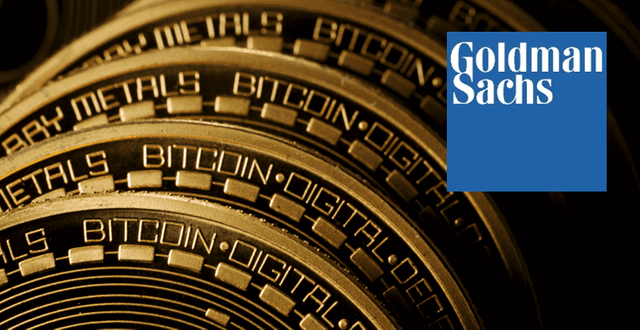The Goldman Sachs Private Asset Management Division has recently released an annual outlook for its clients that has little to say about cryptocurrency and bitcoin. Whatever it is thought in all departments of the US Bank, but remains unclear.

The investment strategists write in their outlook: "There is no doubt that the rise in the bitcoin price has pushed him into the bubble area." The meteoric price rise in a short time even put the price increases during the dot-com bubble in the shade. According to the outlook, this also applies to other cryptocurrencies.
The Goldman Sachs strategists come to this conclusion by comparing Bitcoin and Ether prices with the S & P 500, Nasdaq and Topix stock price indices around their highs - and with price developments during the 17th century Dutch tulip mania. The result: The price movement of the Bitcoin makes both stock and tulip bubbles appear dwarfish, in the case of the ether, this picture is even more pronounced.
The Investment Strategy Group team led by Chief Investment Officer Sharmin Mossavar-Rahmani and Head of Tactical Asset Allocation Brett Nelson continues:
"Although we do not know whether Bitcoin or any other cryptocurrency is doubling or tripling from current prices, we do not believe that these cryptocurrencies, in their current form, will retain their value in the long term."
It also claims that the concept of a digital currency based on blockchain technology is quite viable given the benefits it can bring, such as facilitated execution worldwide, lower transaction costs, less corruption through the traceability of all transactions and the security of property. However, the authors write: "The Bitcoin does not offer any of these key advantages." On the contrary, the explanations would not be facilitated, the billing often takes up to ten days, and by the end of 2017, the price difference for a Bitcoin between 17 US trading events in the Peak up to 31 percent amount. Transaction costs have skyrocketed, and frequent hacker attacks have wipped out Bitcoin's holdings of individual wallets and entire stock exchanges.
The Goldman Sachs strategists do not believe that a bitcoin collapse would have serious contagion effects on the global economy or the financial markets. They point out that at the peak of the dotcom bubble in March 2000, the combined market capitalization of the Nasdaq index and IT stocks in the S & P 500 index was 101% of US Gross Domestic Product (GDP) - and 31% of global GDP. By contrast, the market capitalization of cryptocurrency is only 3.2% of US GDP and 0.8% of GDP worldwide. With cryptocurrency trading and ownership concentrated more in Asia than in the US, global GDP is the more appropriate benchmark.
Goldman Sachs' Private Wealth Management Investment Strategy Group's skeptical views do not need to necessarily reflect the views of the entire bank, as noted in the outlook quoted here. It was only in December 2017, media reports have aroused attention, after Goldman Sachs as the first major Wall Street Institute wants to build a trading area for cryptocurrency in New York, which could go to the end of June 2018 according to the financial news agency Bloomberg at the start. Goldman Sachs had neither confirmed nor denied these reports.